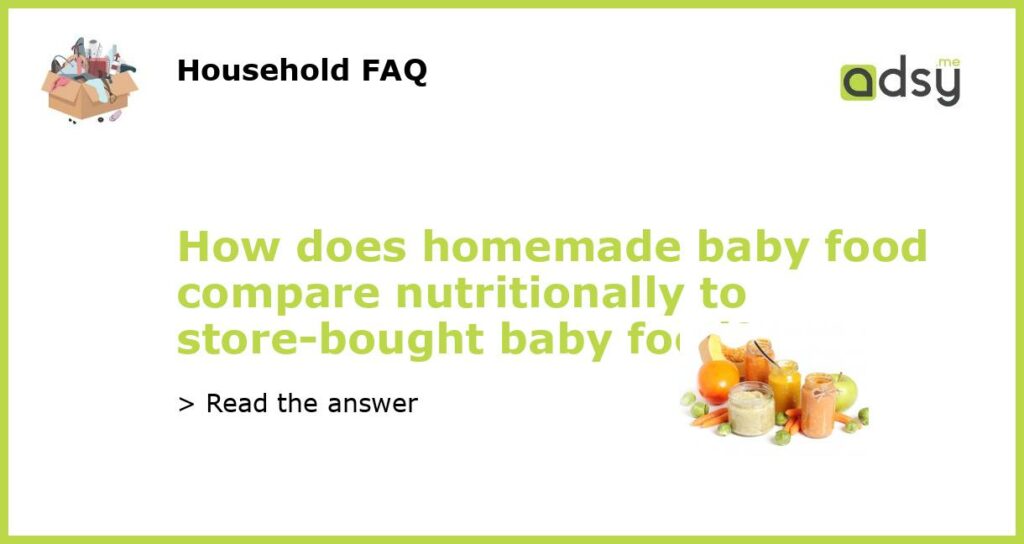Homemade vs Store-bought: The Nutritional Comparison of Baby Food
For many new parents, choosing the best baby food for their little ones is an important decision. With so many options available, it can be difficult to determine which one is right for your child. One decision parents may consider is whether to make homemade baby food or purchase store-bought baby food. In this article, we will compare the nutritional value of homemade and store-bought baby food.
Making Homemade Baby Food
Preparing your own baby food just requires a blender or food processor, and some fresh ingredients. Many parents choose to make their own baby food because they can control the quality and freshness of the ingredients, and avoid preservatives and artificial flavors found in store-bought baby food.
Homemade baby food is typically made from single ingredient foods or a blend of foods. Common foods include vegetables, fruits, grains, and proteins like chicken or beef. Some parents may also choose to add breast milk or formula to their homemade baby food for added nutrition.
Nutritional Value of Homemade Baby Food
Homemade baby food is often considered more nutrient-dense than store-bought baby food. Using fresh produce and whole foods, parents can ensure that their baby is getting all the vitamins, minerals, and fiber they need for healthy growth and development.
Additionally, because homemade baby food is made from scratch, parents can control the amount of certain nutrients their baby is getting. For example, if a baby needs more iron in their diet, parents can add iron-rich foods like spinach or beef to their homemade baby food.
Purchasing Store-bought Baby Food
For busy parents, store-bought baby food can be a convenient option. These products are typically found in the baby food aisle at most grocery stores and come in a variety of flavors and textures. Brands like Gerber, Beech-Nut, and Plum Organics are popular choices for store-bought baby food.
Many store-bought baby foods are made from a combination of fruits, vegetables, and grains, and come in either pureed or mashed form. Some products may also have added sugars or salt. It’s important to read the label carefully when purchasing store-bought baby food to ensure it meets your baby’s nutritional needs.
Nutritional Value of Store-bought Baby Food
Store-bought baby food can be a convenient option, but it may not be as nutrient-dense as homemade baby food. These products often contain added preservatives and may not offer the same variety of fresh, whole foods that homemade baby food provides.
However, store-bought baby food is required to meet certain nutritional standards set by the FDA, which ensures that babies are getting the proper nutrients they need. It’s also important to note that some store-bought baby food products are fortified with additional nutrients like iron and vitamin D, which are important for a baby’s development.
Both homemade and store-bought baby food can be healthy and nutritious options for parents. Homemade baby food is often considered more nutrient-dense and allows parents to control the ingredients and nutrients in their baby’s diet. Store-bought baby food can be a convenient option for busy parents and is required to meet certain nutritional standards. Regardless of which option parents choose, it’s important to introduce a variety of healthy foods into a baby’s diet to ensure they are getting all the necessary nutrients for healthy growth and development.






